In this tutorial, I will show you how to easily and quickly swap the rows and columns of a table in Excel. Whether you want to restructure a table or change the arrangement of data, with a simple trick you can make the desired changes without losing much time with manual copying and pasting. This technique will help you achieve more efficient results in your Excel work.
Main Insights
- You can use the "Transpose" function to swap rows and columns.
- The formatting can be adjusted in the new layout.
- Excel offers numerous options to quickly visualize results and display statistics.
Step-by-Step Guide
First, you need to copy the data you want to transpose. To do this, select the needed cells of your table.
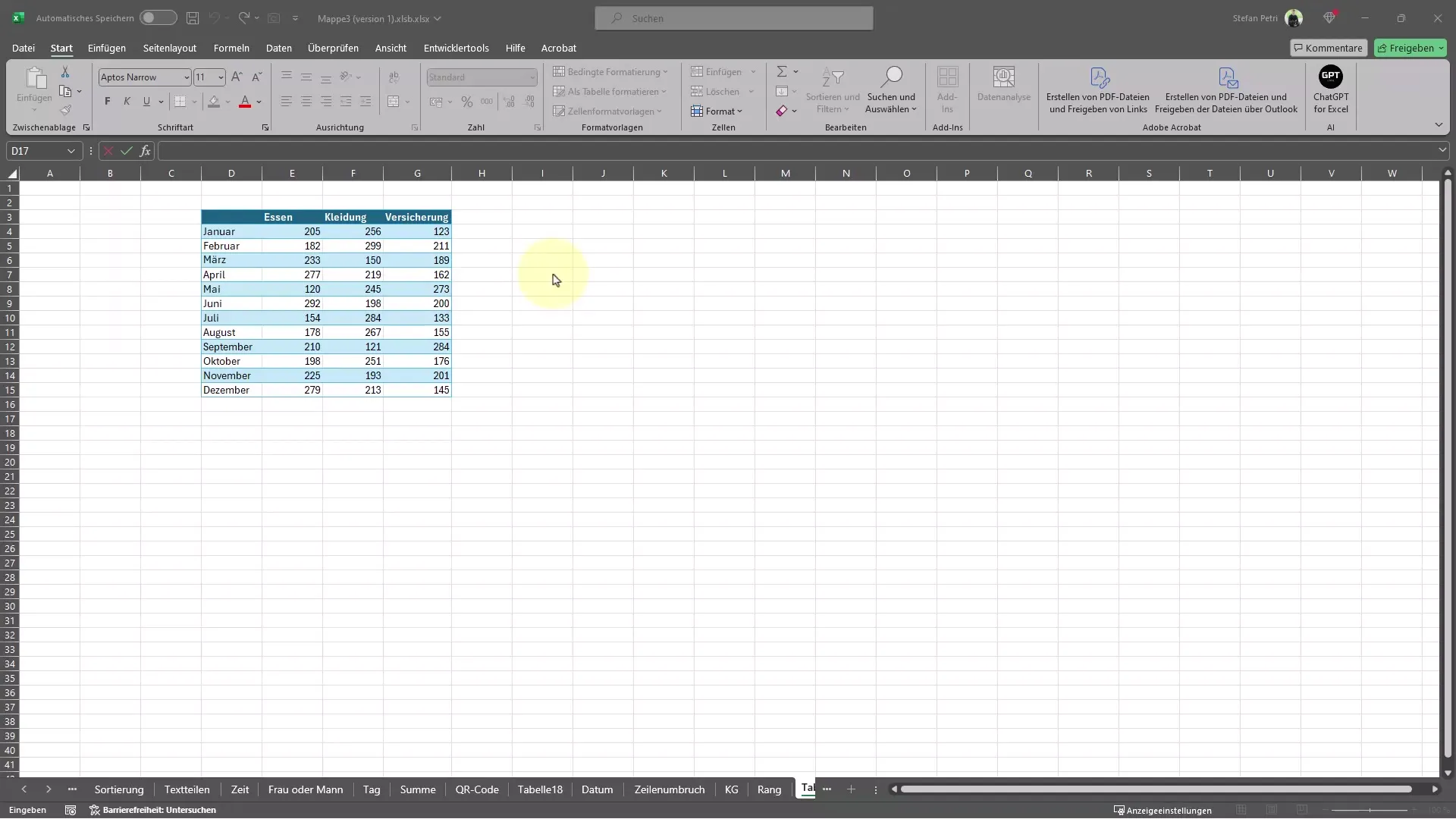
After the cells are highlighted, copy them using the keyboard shortcut Ctrl + C. This works as usual and copies the data to the clipboard.
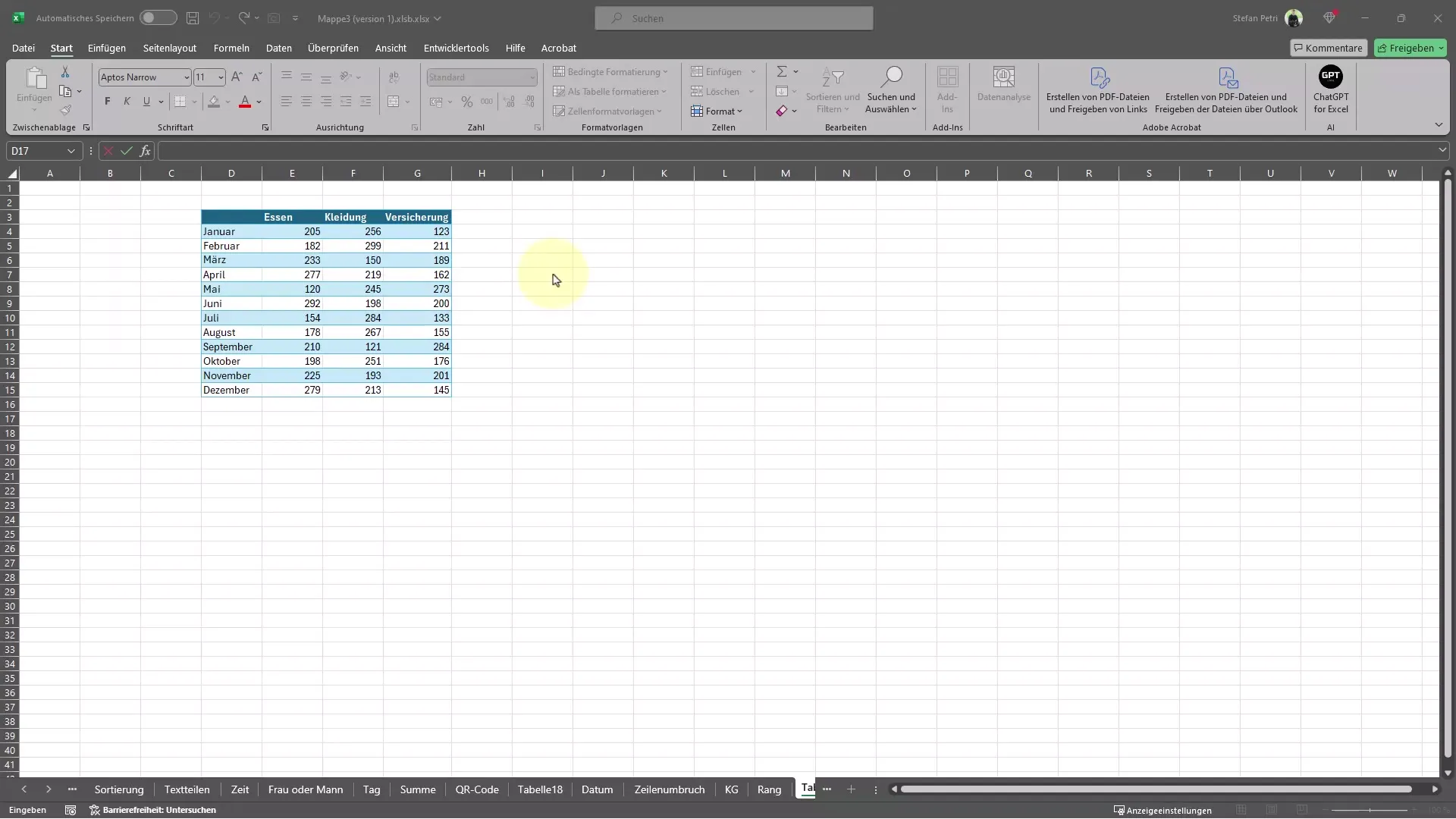
Now, switch to the area where you want to paste the transposed data. Click on the cell where you want the first transposed cell to be.
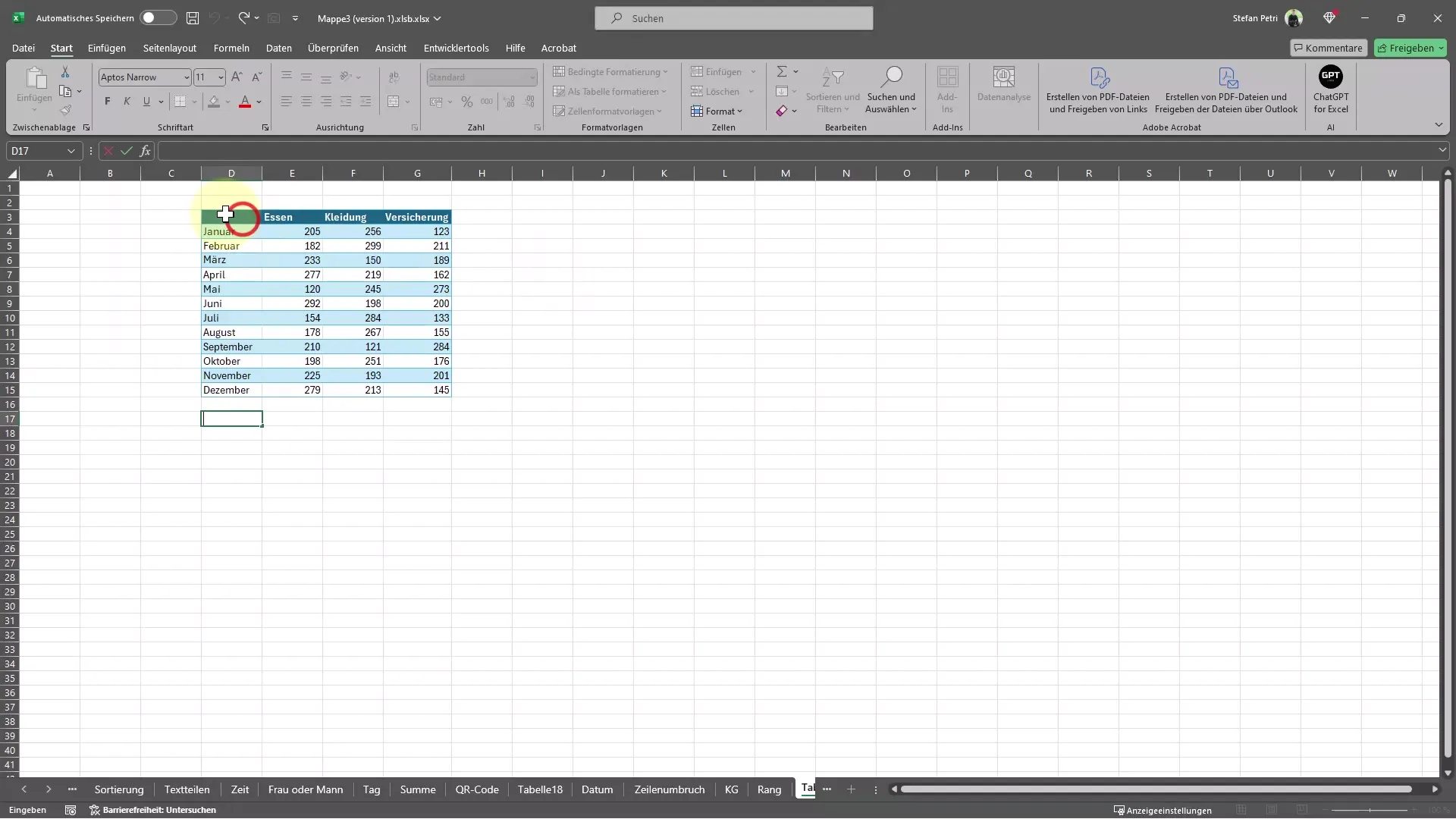
I have everything selected now:
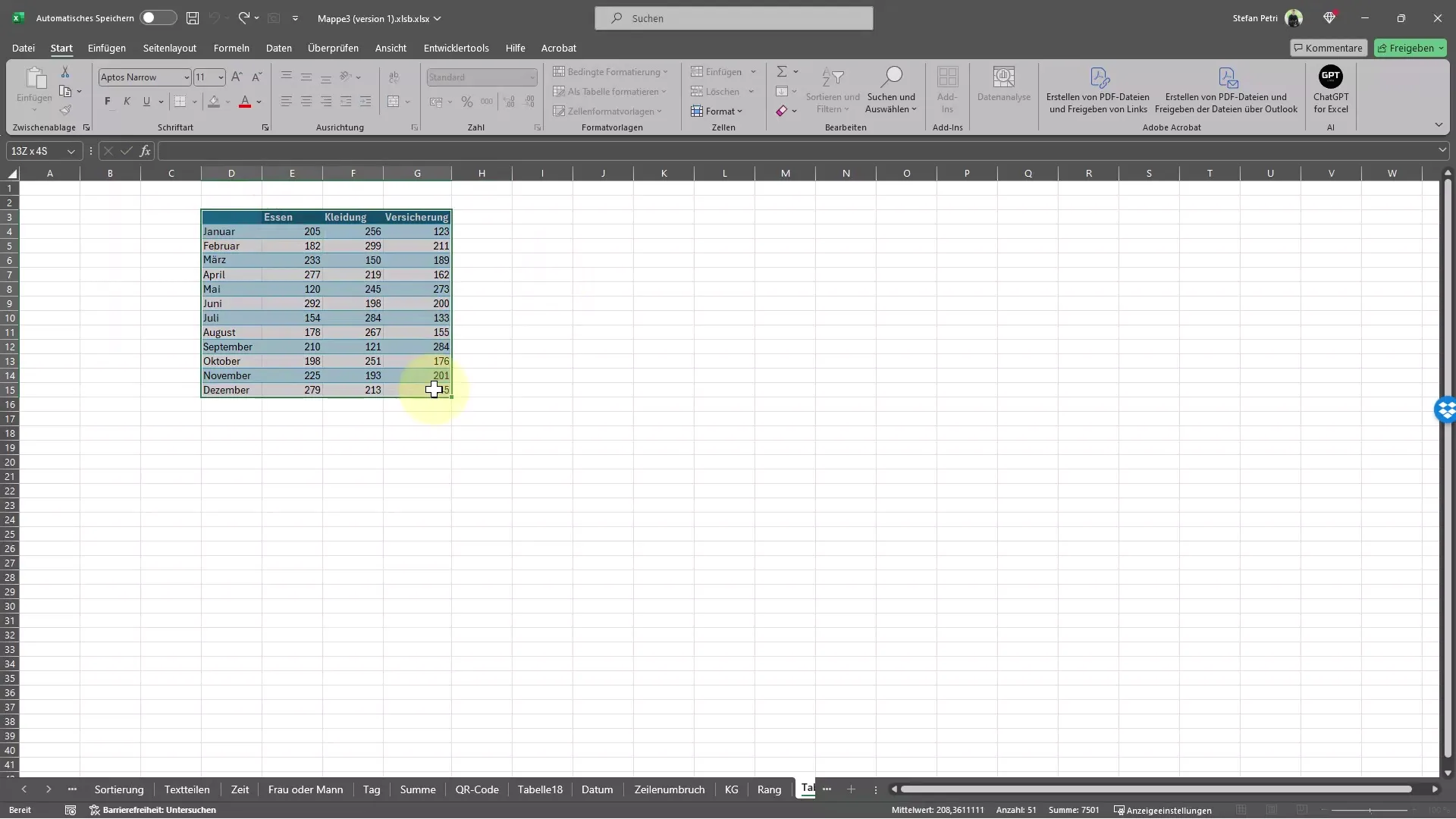
To paste the copied data transposed, use again the keyboard shortcut Ctrl + V. This will paste the data, but in the default option which is not transposed. To choose the transposed option, click on the small symbol that appears after you paste the data. Click on it to display the different paste options.
One of the options is "Transpose." If you select this, Excel will convert the rows once copied into columns.
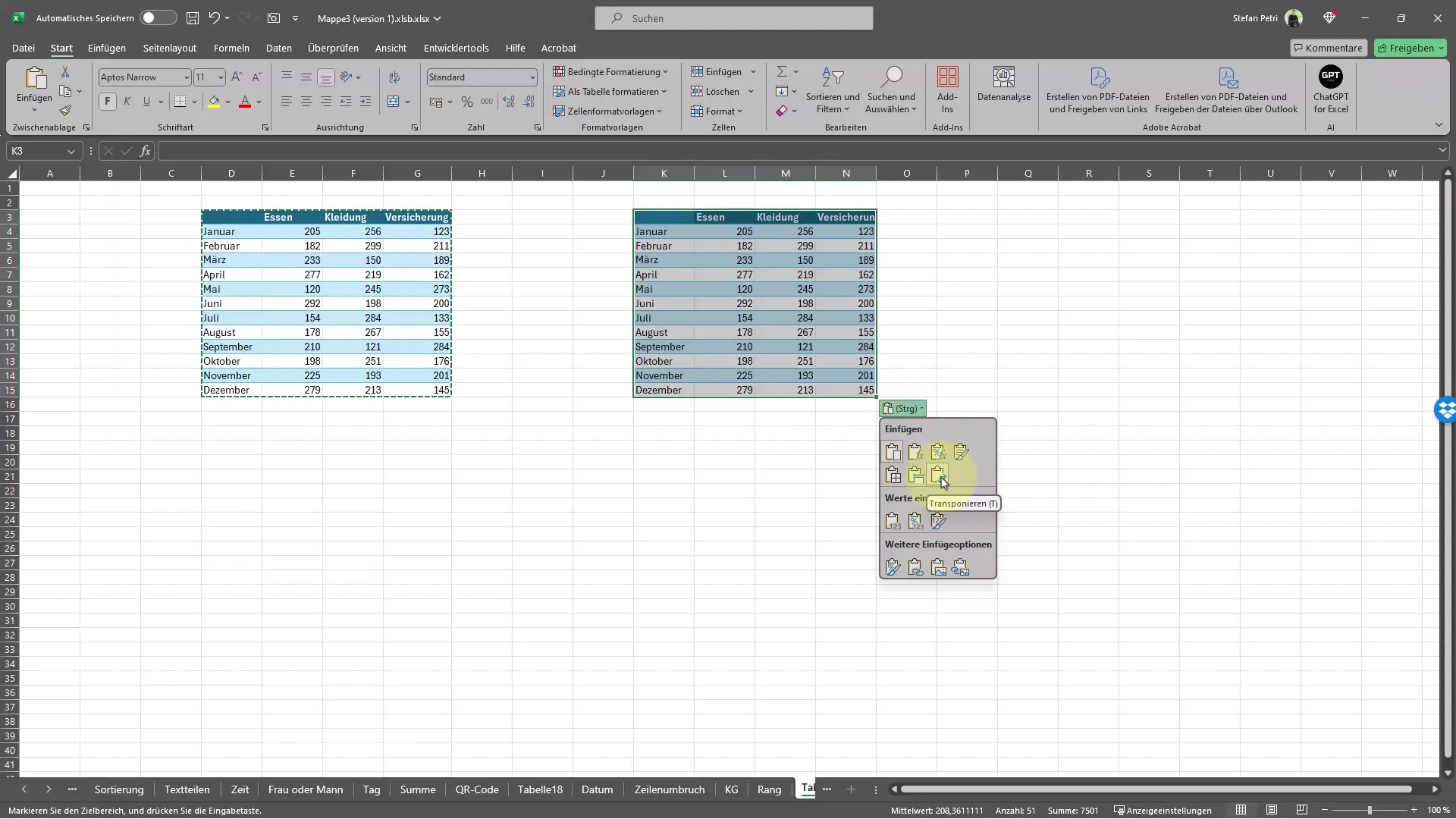
You will see that Excel now displays the data so that the original rows are now arranged in columns, and each original row forms a separate column.
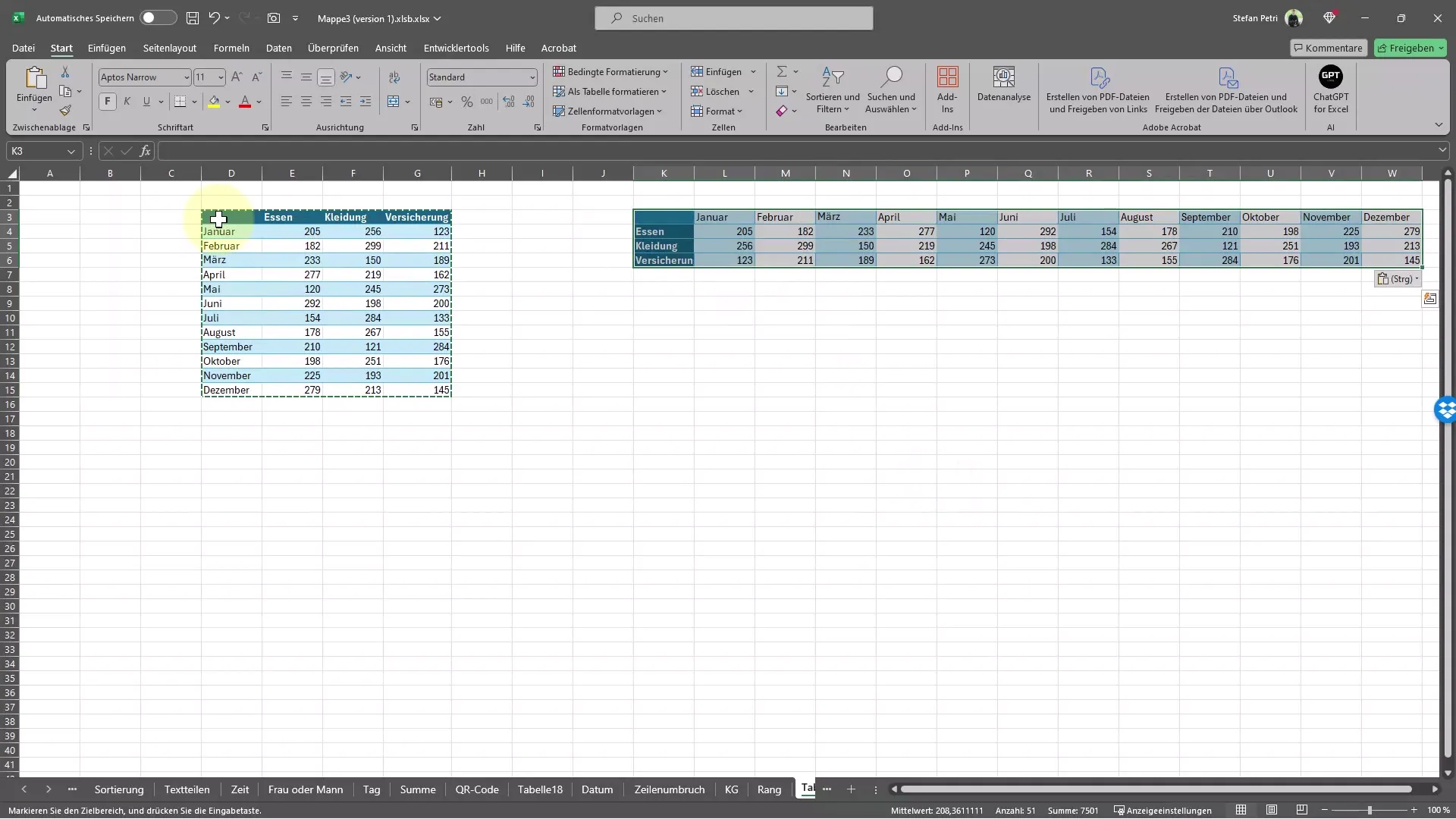
Now you can adjust the formatting of the new columns to your liking. You have the flexibility to change the colors, fonts, and other formatting options.
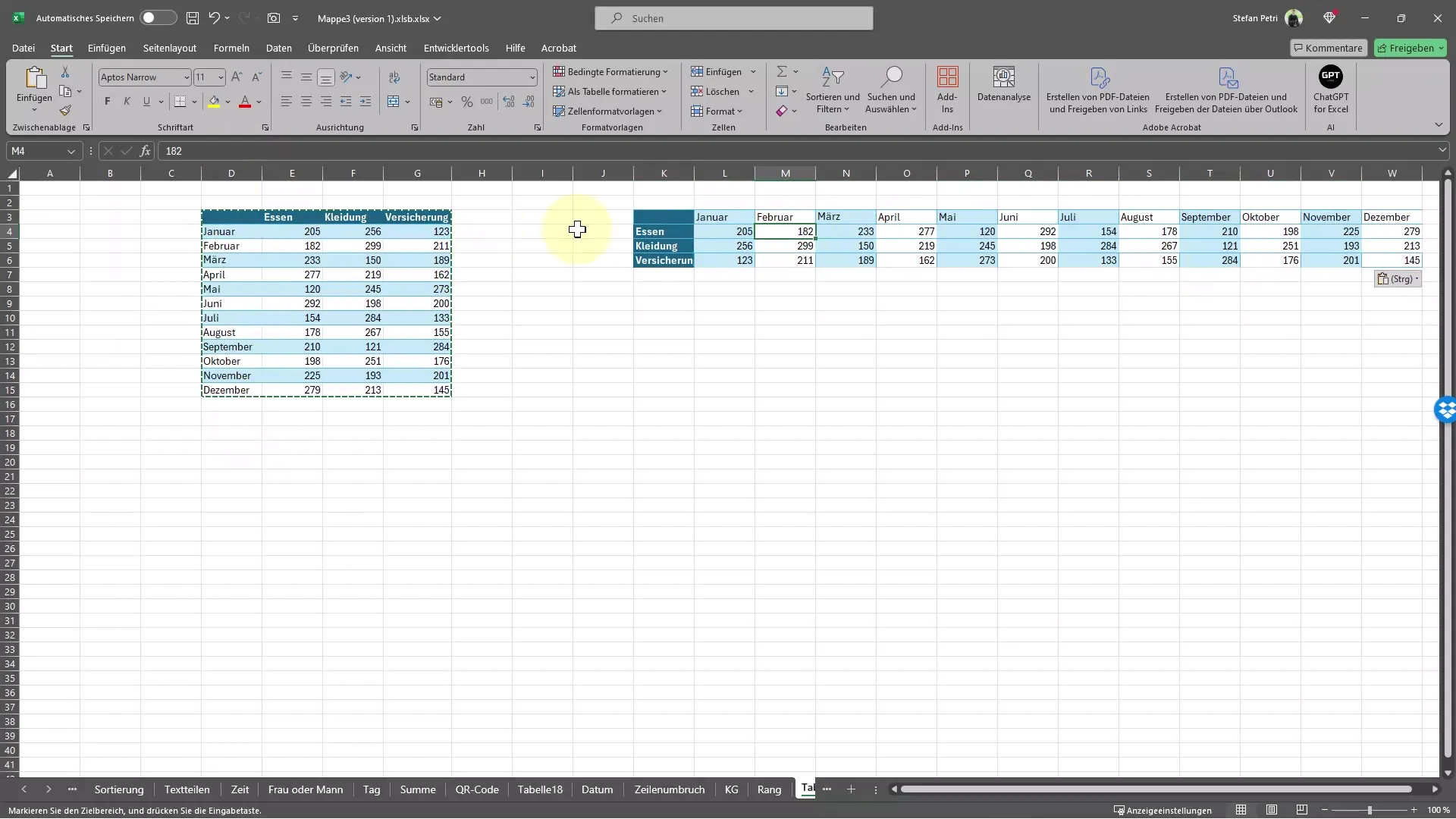
Excel also offers additional features, such as creating charts or graphs for your data. For example, if you want to add a chart for a visual representation of your data, you can do so right after transposing.
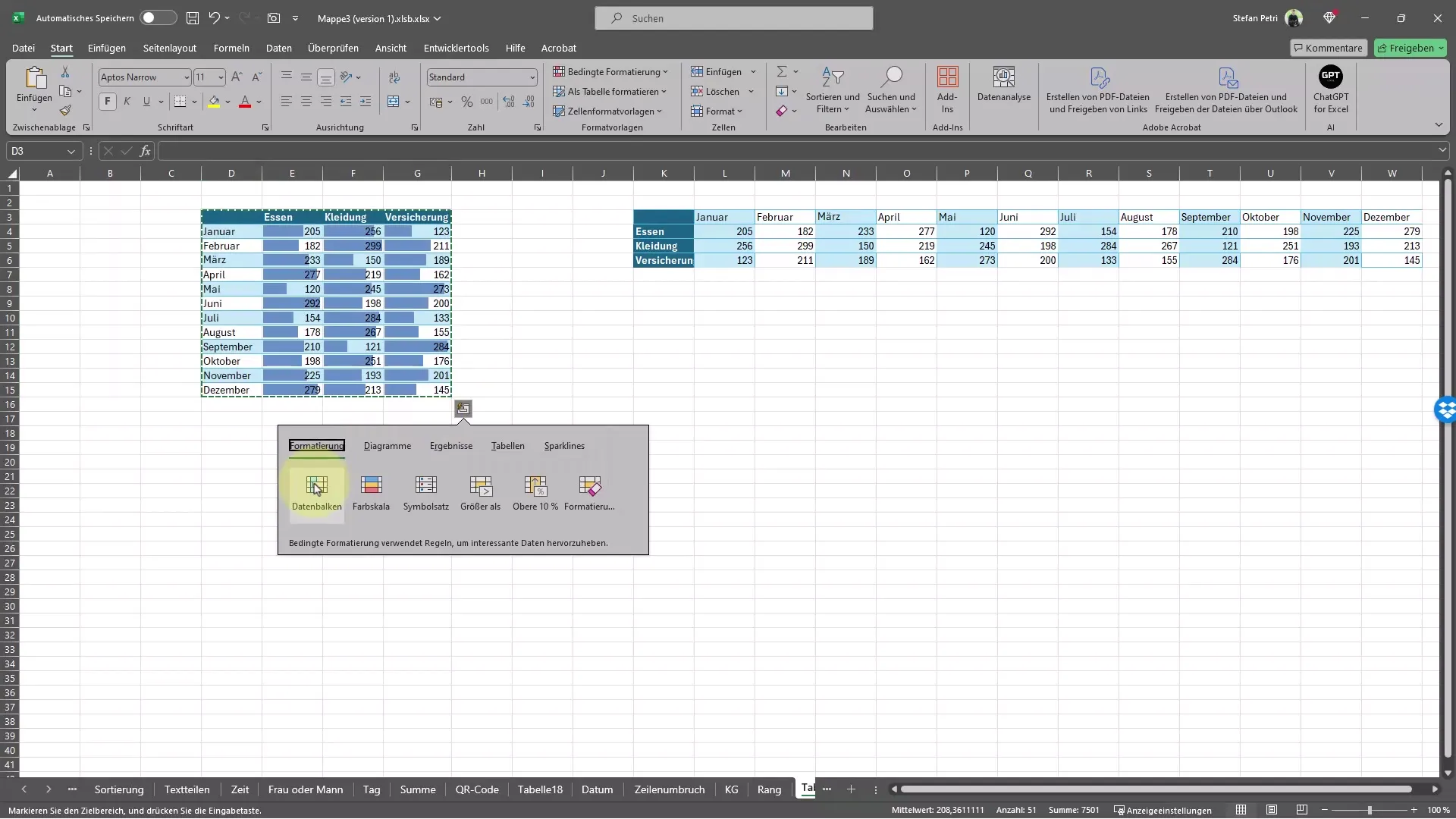
In addition, you can apply functions like sums or averages directly in this new layout, without having to make manual calculations. This significantly increases your efficiency.
I recommend trying out this method and exploring the various options in Excel. This way, you can maximize the benefits of the software.
Summary
With the Transpose function in Excel, you can easily swap rows and columns. The described steps guide you through the process and help you quickly change your table structure without losing valuable time. Experiment with formatting options and the advanced functions of Excel to get the most out of your data!
Frequently Asked Questions
How do I copy data in Excel?You can copy data in Excel by selecting the desired cells and using the keyboard shortcut Ctrl + C.
How do I paste data transposed?Select the cell where you want to paste the data and click on the "Transpose" paste option after pasting the data.
Can I change the formatting of the new columns?Yes, you can adjust the formatting at any time, including colors and fonts.
What can I do after transposing the columns?You can create charts, apply functions, or make further adjustments to analyze the data.


